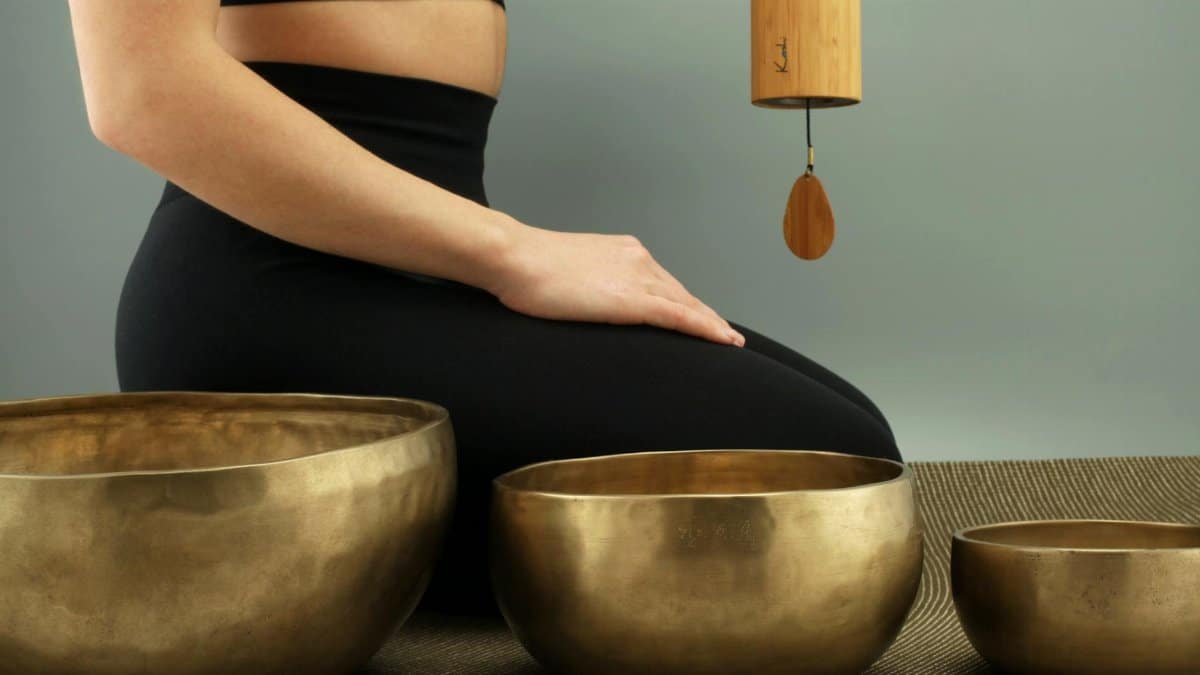Walk down the bustling streets of Atlanta these days, and you might catch the faint hum of a singing bowl or the gentle chime of a gong drifting from a nearby studio. This subtle shift points to a growing embrace of sound relaxation healing, a practice blending ancient traditions with modern wellness needs. As more locals seek respite from the grind of city life, events featuring these therapeutic sounds are popping up everywhere. From community centers in Midtown to parks in Buckhead, sessions promise relief through vibrations and tones. It’s not just a fad. With rising awareness of mental health, Atlantans are turning to these methods to unwind. Experts note how sound can recalibrate the nervous system, offering a counterpoint to daily stressors. This trend reflects a broader cultural move toward holistic approaches, making sound relaxation healing a fixture in the city’s evolving wellness scene.
The Roots of Sound Relaxation Healing

Sound has long served as a tool for healing across cultures. Think of Tibetan monks chanting or Native American drumming circles. These practices harness vibrations to promote balance. In Atlanta, this ancient wisdom meets contemporary life. Local practitioners draw from global traditions, adapting them for urban dwellers. One instructor, blending her Indian heritage with Southern roots, leads sessions that incorporate Himalayan bowls and African rhythms. Participants often leave feeling grounded. Research supports this. A study from the National Institutes of Health highlights how sound therapy can reduce anxiety. It showed participants experiencing lower cortisol levels after exposure to specific frequencies. This isn’t mere folklore. Science backs the calm it brings.
Yet, the practice evolves. In Georgia’s capital, innovators experiment with technology. Apps now simulate healing sounds for home use. But nothing beats live events. They foster community, amplifying the effects. As one attendee put it, the shared resonance creates a collective sigh of relief.
Why Atlanta is Embracing This Trend

Atlanta’s fast-paced vibe fuels the rise. Tech hubs and corporate offices breed stress. Commutes clog highways, and work demands stretch long. Enter sound relaxation healing as a balm. Events multiply in response. Yoga studios host weekly sound baths. Festivals like the Atlanta Jazz Festival weave in healing elements. It’s a natural fit for a city known for its creative energy. Public interest surges amid mental health conversations. Post-pandemic, many seek non-pharmaceutical aids. A report from the Centers for Disease Control and Prevention notes rising stress levels in urban areas. Atlanta fits the bill. Locals report better sleep and focus after sessions.
Demographics play a role too. Diverse neighborhoods bring varied influences. In East Atlanta Village, multicultural groups blend sounds from around the world. This inclusivity draws crowds. One recent public account described a session as transformative, easing chronic tension built from desk jobs. Such stories spread, pulling more into the fold.
Benefits Backed by Science

Dive into the evidence, and it’s compelling. Sound waves interact with brain activity. They can shift states from alert to relaxed. A paper in the Journal of Evidence-Based Integrative Medicine details this. It found sound therapy aids in pain management and emotional regulation. For Atlantans juggling careers and family, these perks matter. Imagine a parent unwinding after a chaotic day. Or a professional shaking off meeting fatigue. Real results emerge. Another study, linked here from NCBI on Sound Therapy Effects, shows improved mood metrics post-treatment.
But it’s not one-size-fits-all. Variations exist. Some prefer binaural beats, others crystal bowls. Personalization enhances outcomes. In group settings, the communal aspect boosts endorphins. Science from Pew Research underscores wellness trends, with sound practices gaining traction among middle-aged adults seeking balance.
Local Events Leading the Way

Spotlight a typical evening in Grant Park. A circle forms under oak trees. The facilitator strikes a tuning fork. Vibrations ripple through the air. Attendees lie on mats, eyes closed. This scene repeats across Atlanta. Venues like the Atlanta Botanical Garden now offer sound immersion nights. Community centers in Decatur schedule monthly gatherings. Even corporate retreats incorporate them. One company reported higher employee satisfaction after introducing sound breaks. It’s practical. No fancy equipment needed, just intention and instruments.
Accessibility drives popularity. Free or low-cost options abound. Libraries host introductory workshops. This democratizes healing. As one participant shared anonymously online, it felt like discovering a hidden oasis amid city noise. Such events build momentum, projecting even more in 2025.
Challenges and Misconceptions

Not everyone buys in right away. Skeptics question the science. Is it placebo or real? Valid concerns arise. Pseudoscience sometimes muddies waters. But reputable sources clarify. The American Psychological Association discusses complementary therapies, noting sound’s potential when evidence-based. Link to their overview: APA on Complementary Medicine. In Atlanta, practitioners emphasize transparency. They share studies during intros.
Access remains an issue. Not all neighborhoods have events. Suburban areas lag. Efforts aim to bridge this. Mobile sound vans tour underserved spots. Still, misconceptions persist. Some view it as New Age fluff. Yet, grounded applications prove otherwise. A nurse using it for patient care illustrates its reach.
Expert Voices on the Horizon

Meet Dr. Elena Ramirez, a local wellness expert. She predicts sound relaxation healing will integrate into mainstream health. “By 2025, expect it in hospitals,” she says. Her clinics already do. Interviews reveal optimism. Another specialist points to tech advancements. Virtual reality sound experiences loom. This could expand access. From a broader view, the National Center for Complementary and Integrative Health tracks these shifts. Their data, available at NCCIH on Sound Healing, supports growth projections.
Tensions exist too. Balancing tradition with innovation sparks debate. Purists worry dilution. Others celebrate evolution. In Atlanta, this dialogue enriches the scene.
Getting Involved in Atlanta

Ready to try? Start simple. Check apps for local listings. Attend a beginner class. Many offer trial sessions. Bring an open mind. Comfortable clothes help. Hydrate afterward, as vibrations can stir emotions. Building a routine pays off. Weekly participation yields cumulative benefits. Connect with groups via social meetups. Atlanta’s scene welcomes newcomers.
Volunteering at events deepens engagement. Or host your own small gathering. Resources abound online. A study from Harvard Medical School affirms community involvement boosts well-being. Find it here: Harvard on Community Benefits.
Broader Implications for Wellness

Sound relaxation healing ties into larger trends. Mental wellness tops priorities. In a city like Atlanta, where innovation thrives, it fits. Workplace programs adopt it to combat burnout. Schools explore it for student focus. The ripple effects extend. As public interest grows, policy might follow. Funding for holistic health could increase. This practice underscores a shift toward preventive care.
Reflect on a group in Piedmont Park. Laughter follows a session. Connections form. It’s more than sound; it’s community healing. This potential shapes Atlanta’s future.
Personal Stories That Inspire

Hear from those transformed. A midtown executive found clarity amid chaos. “It reset my mind,” he recalls. Another, a teacher from Inman Park, eased insomnia. These tales humanize the trend. They show sound relaxation healing’s real impact. Anonymized accounts echo this. One described waves of peace washing away daily grit.
Such narratives fuel expansion. They inspire others to join. In 2025, expect more voices sharing similar journeys.
